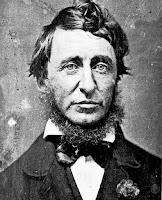Literature / Writer's Datebook: July 10
Brief biography of Marcel Proust, French novelist, short story writer and critic, famous for his
novel Remembrance of Things Past.
French author Marcel Proust (1871-1922),
is best known for his seven-part novel Remembrance of Things Past (sometimes
translated as In Search of Lost Time), considered as one of the most profound
and perfect achievements of literature.
Early Life of Marcel Proust
Marcel Proust was born on July 10, 1871, in
Anteuil, near Paris in France. He was the son of a prominent
doctor and a wealthy Jewish mother. He suffered with asthma from an early age, a
semi-invalid all his life, but this did not prevent him from attending
secondary school, doing his military service. He later studied law and
literature at the famous Sorbonne in Paris.
Proust began writing in magazines while at
school. When he was 25 years old, he published a collection of serious yet stylish
short stories entitled Pleasures and Days. About this time, he gradually
withdrew from his high-society. With his health already deteriorating, and his support
of Captain Dreyfus, the Jewish army officer who was wrongly accused of
betraying French secrets to the Germans, Proust lost some of his aristocratic
friends and other influential people in high places. The death of his father
and beloved mother aggravated his grief, and he withdrew still further, becoming
a virtual recluse, giving himself to introspection.
Proust the Freelance Writer
Proust became financially independent when
he was 34 years old, following the death of his parents. He started his great
novel, Remembrance of Things Past. Influenced by the autobiographies of Johann
Wolfgang con Goethe and Francois René Chateaubriand, he set out to tell the
story of a search for truth based on the events of his own life. In so doing,
he transformed into art the realities of experience. The main character,
Marcel, discovers that as an artist he can reveal truths about life through the
careful expression and reflection of his own memories. The novel was originally
published in seven parts between 1913 and 1927.
Marcel Proust died at the age of 51, on
November 18, 1922.
Recommended viewing / listening:
A literary legend: The life and legacy of Marcel Proust • YouTube, uploaded by FRANCE 24 English. Accessed July 10, 2022.
Marcel Proust Documentary. YouTube, uploaded by Write Like. Accessed July 10, 2023.
Proust - In Search of Lost Time - 7 Volumes (Full Summary). YouTube, uploaded by Fiction Beast. Accessed July 10, 2022.
Image Credit:
Marcel Proust. Wikipedia Commons / Public Domain
Works by Marcel Proust
Remembrance of Things Past (or In Search of Lost Time), published in
seven parts, 1913-1927
Swann's Way, 1913 in French, 1922 in English
Within a Building Grove, 1919 in French, 1924 in English
The Guermantes Way,
1920-21, two volumes in French, 1925, in English
The Cities of the Plain, 1921-22, three volumes in French, 1927, in
English
The Captive, 1923 in French, 1929 in English, posthumous
The Sweet Cheat Gone, 1925 in French, 1930 in English, posthumous
The Past Recaptured or Time Regained, 1927 in French, 1931 in
English, posthumous
Resources:
Biographical Dictionary, edited by Una
McGovern, Chambers, 2002
Dictionary of Writers, edited by Rosemary
Goring, Larousse, 1994
Marcel Proust. Wikipedia.org
Illustrated Biographical Dictionary, edited by
John Clark, Chancellor Press, 1978
(c) July 2009. Updated July 10, 2023. Tel. Inspired Pen Web. All rights reserved.






